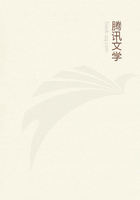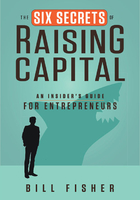Note.- If we could possess an adequate knowledge of the duration of things, and could determine by reason their periods of existence, we should contemplate things future with the same emotion as things present; and the mind would desire as though it were present the good which it conceived as future; consequently it would necessarily neglect a lesser good in the present for the sake of a greater good in the future, and would in no wise desire that which is good in the present but a source of evil in the future, as we shall presently show. However, we can have but a very inadequate knowledge of the duration of things (II:xxxi.) and the periods of their existence (II:xliv.Note) we can only determine by imagination, which is not so powerfully affected by the future as by the present. Hence such true knowledge of good and evil as we possess is merely abstract or general, and the judgment which we pass on the order of things and the connection of causes, with a view to determining what is good or bad for us in the, present, is rather imaginary than real.
Therefore it is nothing wonderful, if the desire arising from such knowledge of good and evil, in so far as it looks on into the future, be more readily checked than the desire of things which are agreeable at the present time. (Cf. IV:xvi.)
Prop. LXIII. He who is led by fear, and does good in order to escape evil, is not led by reason.
Proof.- All the emotions which are attributable to the mind as active, or in other words to reason, are emotions of pleasure and desire (III:lix.); therefore, he who is led by fear, and does good in order to escape evil, is not led by reason.
Note.- Superstitions persons, who know better how to rail at vice than how to teach virtue, and who strive not to guide men by reason, but so to restrain them that they would rather escape evil than love virtue, have no other aim but to make others as wretched as themselves; wherefore it is nothing wonderful, if they be generally troublesome and odious to their fellow-men.
Corollary.- Under desire which springs from reason, we seek good directly, and shun evil indirectly.
Proof.- Desire which springs from reason can only spring from a pleasurable emotion, wherein the mind is not passive (III:lix.), in other words, from a pleasure which cannot be excessive (IV:lxi.), and not from pain; wherefore this desire springs from the knowledge of good, not of evil (IV:viii.); hence under the guidance of reason we seek good directly and only by implication shun evil. Q.E.D.
Note.- This Corollary may be illustrated by the example of a sick and a healthy man. The sick man through fear of death eats what he naturally shrinks from, but the healthy man takes pleasure in his food, and thus gets a better enjoyment out of life, than if he were in fear of death, and desired directly to avoid it. So a judge, who condemns a criminal to death, not from hatred or anger but from love of the public well-being, is guided solely by reason.
Prop. LXIV. The knowledge of evil is an inadequate knowledge.
Proof.- The knowledge of evil (IV:viii.) is pain, in so far as we are conscious thereof. Now pain is the transition to a lesser perfection (Def. of the Emotions:iii.) and therefore cannot be understood through man's nature (III:vi.,& II:vii.); therefore it is a passive state (III.Def.ii.) which (III:iii.) depends on inadequate ideas; consequently the knowledge thereof (II:xxix.), namely, the knowledge of evil, is inadequate. Q.E.D.
Corollary.- Hence it follows that, if the human mind possessed only adequate ideas, it would form no conception of evil.
Prop. LXV. Under the guidance of reason we should pursue the greater of two goods and the lesser of two evils.
Proof.- A good which prevents our enjoyment of a greater good is in reality an evil; for we apply the terms good and bad to things, in so far as we compare them one with another (see preface to this Part); therefore, evil is in reality a lesser good; hence under the guidance of reason we seek or pursue only the greater good and the lesser evil. Q.E.D.
Corollary.- We may, under the guidance of reason, pursue the lesser evil as though it were the greater good, and we may shun the lesser good, which would be the cause of the greater evil. For the evil, which is here called the lesser, is really good, and the lesser good is really evil, wherefore we may seek the former and shun the latter. Q.E.D.
Prop. LXVI. We may, under the guidance of reason, seek a greater good in the future in preference to a lesser good in the present, and we may seek a lesser evil in the present in preference to a greater evil in the future.
"Maltim praesens minus prae majori futuro." (Van Vloten). Bruder reads: "Malum praesens minus, quod causa est faturi alicujus mali." The last word of the latter is an obvious misprint, and is corrected by the Dutch translator into "majoris boni." (Pollock, p. 268, note.)
Proof.- If the mind could have an adequate knowledge of things future, it would be affected towards what is future in the same way as towards what is present (IV:lxii.); wherefore, looking merely to reason, as in this proposition we are assumed to do, there is no difference, whether the greater good or evil be assumed as present, or assumed as future; hence (IV:lxv.) we may seek a greater good in the future in preference to a lesser good in the present, &c. Q.E.D.
Corollary.- We may, under the guidance of reason, seek a lesser evil in the present, because it is the cause of a greater good in the future, and we may shun a lesser good in the present, because it is the cause of a greater evil in the future. This Corollary is related to the foregoing Proposition as the Corollary to IV:lxv. is related to the said IV:lxv.















